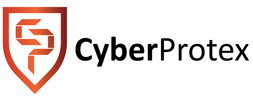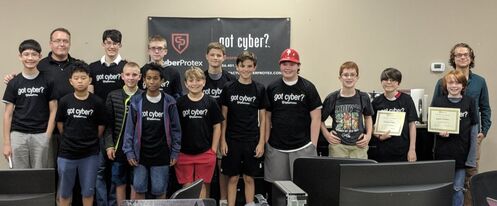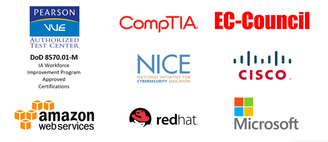Community Youth Outreach
Supporting the Cyber Warriors of the Future!
|
Each year we support and sponsor CyberPatriot teams from Huntsville and Madison. Learn more.
|
CyberProtex proudly works with its local community, including with Madison City and Huntsville City schools, to inspire and prepare young people to pursue careers in cyber security. We currently teach cyber security classes at multiple local schools, we volunteer in schools and at speaking engagements, and we support local PTAs and many sports teams and clubs.
|
|
CyberProtex presents two weeks of Cyber Summer Camp for teens and preteens each summer. Camp themes included Cyber Security, Game & Mobile App Design, and Mobile Forensics. We love supporting the next generation of cyber warriors! |
Cyberbullying & Harassment- Tips and Support
Cyberbullying can range from embarrassing or cruel online posts or digital pictures; to online threats, harassment, and negative comments; and to stalking through emails, websites, social networks and text messages. Every age group is vulnerable to cyberbullying, but teenagers and young adults are common victims. Cyberbullying is a growing problem in schools. Cyberbullying has become an issue because the Internet is fairly anonymous, which is appealing to bullies because their intimidation is difficult to trace. Unfortunately, rumors, threats and photos can be disseminated on the Internet very quickly.
Protect Your Children from Cyberbullying:
- Limit where your children post personal information: Be careful who can access contact information or details about your children’s interests, habits or employment to reduce their exposure to bullies that they do not know. This may limit their risk of becoming a victim and may make it easier to identify the bully if they are victimized.
- Avoid escalating the situation: Responding with hostility is likely to provoke a bully. Depending on the circumstances, consider ignoring the issue. Often, bullies thrive on the reaction of their victims. If you or your child receives unwanted email messages, consider changing your email address. The problem may stop. If you continue to get messages at the new account, you may have a strong case for legal action.
- Document cyberbullying: Keep a record of any online activity (emails, web pages, social media posts, etc.), including relevant dates and times. Keep both an electronic version and a printed copy.
- Report cyber bullying to the appropriate authorities: If you or your child are being harassed or threatened, report the activity to the local authorities. Your local police department or FBI branch are good starting points. There is a distinction between free speech and punishable offenses. Law enforcement officials and prosecutors can help sort out legal implications. It may also be appropriate to report it to school officials who may have separate policies for dealing with activity that involves students.
- Own your online presence: When available, set the privacy and security settings on websites to your comfort level for information sharing. It’s OK to limit how and with whom you share information.
- Safer for me, more secure for all: What you do online has the potential to affect everyone – at home, at work and around the world. Practicing good online habits benefits the global digital community.
- Post only about others as you have them post about you. The Golden Rule applies online as well.
Additional Resources:
- Stay Safe Online
- What Is Cyberbullying? An Overview for Students, Parents, and Teachers
- Facebook Family Safety Center
- Facebook Help Center: Bullying
- StopCyberBullying.org
- Understanding Bullying and Cyberbullying
- Understanding Cyberbullying in College
- Wristband Resources: Bullying by the Numbers
REFERENCE - https://staysafeonline.org/stay-safe-online/for-parents/cyberbullying-and-harassment





